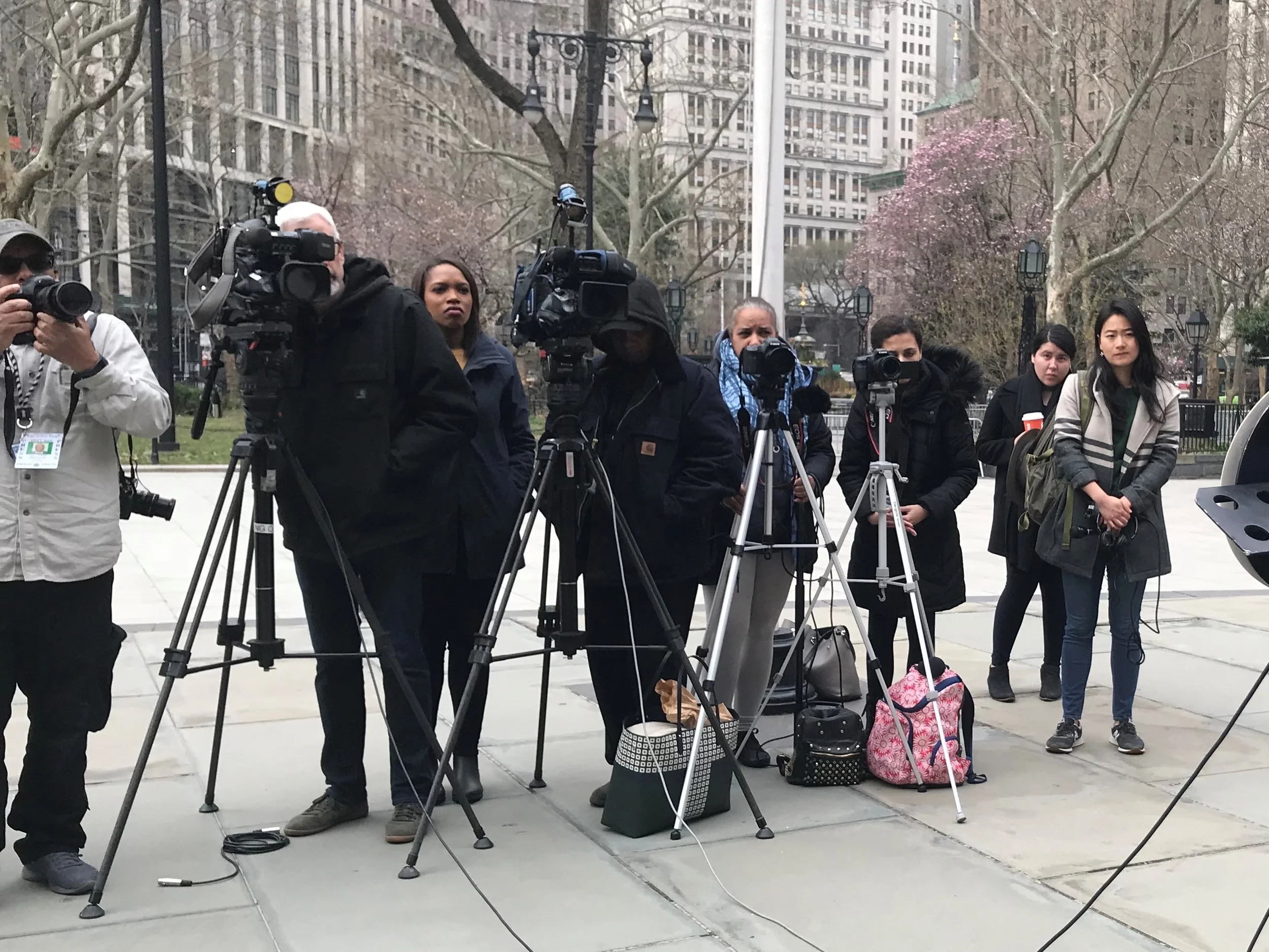Baltimore, MD – National advocacy organization Worth Rises has filed a petition for clarification and rehearing with the Maryland Public Service Commission (PSC), urging the PSC to closely scrutinize the proposed ownership transfer of Securus Technologies
WORTH RISES CONDEMNS FCC ROLLBACK OF CORRECTIONAL TELECOM REGULATIONS, CITING MANIPULATION BY INDUSTRY AND HARM TO INCARCERATED FAMILIES
Washington, D.C. — Today, in a split 2-1 vote, the Federal Communications Commission (FCC) passed revised rate caps for Incarcerated People’s Communication Services (IPCS), rolling back unanimously passed 2024 regulations that had finally set just and reasonable rate caps based on more than a decades-long record. The 2025 revised rate caps will deliver substantially less financial relief to families impacted by incarceration — at least $215 million less per year.
EUROPEAN BANKS REFUSE OECD OFFER OF MEDIATION IN UNPRECEDENTED MOVE FOLLOWING COMPLAINT ON PRIVATE PRISON INVESTMENTS
New York and Nijmegen — Today, the Swiss National Contact Point (NCP) for the Organization for Economic Cooperation and Development (OECD) published a Final Statement on a complaint concerning Swiss-based UBS and its ongoing business links to U.S. private prison corporations CoreCivic and GEO Group, particularly those established through the bank’s passive investments. In the statement, the Swiss NCP reveals that, in an unprecedented move, UBS — alongside UK-based HSBC and Barclays, also named in the complaint — declined to participate in mediation with the complainants, civil society organizations BankTrack and Worth Rises, despite an initial assessment by the body that found the groups’ assertions had merit.
Worth Rises Releases Impact Analysis of the FCC’s Proposed Revisions to Its 2024 Regulations on Incarcerated People’s Communications Services and Rebukes the Revisions as Overly Broad and Misguided
WASHINGTON, D.C. — Today, Worth Rises released the first impact analysis of the Federal Communications Commission’s proposed revisions to the agency’s 2024 regulations on incarcerated people’s communications services.
Public Interest Groups Send Letter Asking FCC to Rescind the Suspension of Incarcerated Person Calling Service (IPCS) Rate Caps Mandated by Law
WASHINGTON — Today, nearly 100 civil rights and advocacy organizations representing individuals and communities across the country submitted a letter to Federal Communications Commission (FCC) Chairman Brendan Carr and Commissioners Anna Gomez and Olivia Trusty, calling on the Commission to overturn the Wireline Competition Bureau’s June 30 Suspension Order. The order suspends critical protections guaranteed by the bipartisan Martha Wright-Reed Just and Reasonable Communications Act to lower price caps on prison phone calls.
Public Interest Groups Challenge FCC’s Suspension of Implementing Incarcerated Person Calling Service (IPCS) Rate Caps Mandated by Law
WASHINGTON — Yesterday, a coalition of public interest groups including UCC Media Justice Ministry, Worth Rises, the Benton Institute for Broadband & Society and others filed an Application for Review urging the Federal Communications Commission (FCC) to overturn a recent decision by the FCC’s Wireline Competition Bureau that suspends the 2024 FCC rules to lower price caps on prison phone calls.
UK ARM OF INTERNATIONAL HUMAN RIGHTS WATCHDOG ACCEPTS COMPLAINTS AGAINST BARCLAYS AND HSBC FOR PRIVATE PRISON INVESTMENTS, IN A MAJOR WIN FOR FINANCIAL ACCOUNTABILITY
New York, NY | Nijmegen, Netherlands – Today, the United Kingdom’s National Contact Point (NCP) for the Organization for Economic Cooperation and Development (OECD) accepted complaints against UK-based banks Barclays and HSBC after a preliminary investigation. The complaints allege that the banks contravened their responsibilities under the OECD Guidelines on Responsible Business Conduct by maintaining financial ties to CoreCivic and GEO Group, the two largest private prison operators in the United States, without taking steps to prevent or mitigate their exposure to human rights violations.
PRISON PHONE CALLS SOON TO BE FREE IN NEW YORK STATE
ALBANY, NY — In a major victory for families across New York, the Department of Corrections and Community Supervision (DOCCS) has announced that it will make phone calls free for people incarcerated in New York state prisons on August 1st, 2025. The state follows the lead of New York City, which became the first U.S. city to make jail calls free in 2019, saving city families an estimated $10 million per year. Now, with statewide implementation, New York joins California, Colorado (2026), Connecticut, Massachusetts, and Minnesota in providing communication for incarcerated people at no cost. Notably, New York is the first state to take this action administratively, without legislation, setting an example for executive leadership in other states.
FCC DELAY OF PRISON PHONE RATE RULES A SETBACK FOR FAMILIES AND JUSTICE
NEW YORK, NY — Today, Worth Rises denounced the Federal Communications Commission’s (FCC) recent decision to pause implementation of long-awaited regulations capping the cost of phone and video calls in jails and prisons, alongside more than 1,000 families that have already submitted public comments to the FCC urging reconsideration.
TIMELY NEW BOOK EXPOSES THE PRISON INDUSTRY, AUTHOR BIANCA TYLEK AVAILABLE FOR INTERVIEWS
National — The U.S. correctional system is a multibillion-dollar industry, turning a profit from incarceration at every turn. Bought out by private prison interests, the Trump administration is set to radically expand its reach and impact. In her groundbreaking new book, The Prison Industry: How It Works and Who Profits (The New Press, April 8, 2025), Bianca Tylek, Executive Director of Worth Rises, pulls back the curtain on the corporations fueling mass incarceration for financial gain with the help of their government partners. Political shifts at the federal level make this release more timely than ever imagined.

